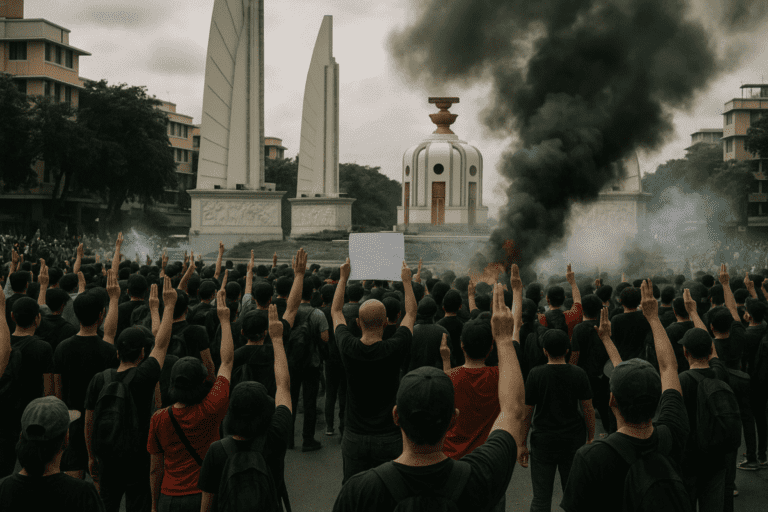On August 7, 2024, Thailand’s Constitutional Court issued a controversial ruling that dissolved the progressive Move Forward Party and banned its leader, Pita Limjaroenrat, from engaging in political activity for the next 10 years. The decision has sent shockwaves through the nation, sparking widespread political unrest, particularly among youth-led movements and pro-democracy advocates who view the ruling as a direct attempt to stifle democratic reforms and limit their growing influence in the political sphere.
The Move Forward Party, which had gained significant momentum in the 2023 general elections, especially among younger voters, represented a shift towards progressive policies in Thailand. Advocating for a reduction in military influence, democratic reforms, and more attention to climate change, education, and social welfare, the party symbolized hope for a more inclusive and transparent political future. The court’s ruling followed allegations that Pita and his party had violated election laws, including campaign funding irregularities and concerns over the structure of their leadership.
A Divided Nation: Protests and Political Unrest
The court’s decision has sparked intense political division across Thailand. Pro-democracy advocates, particularly from the younger generation, have flooded the streets in protest, accusing the judiciary of undermining democracy and attempting to block the will of the people. For many of these protesters, the ruling is seen as an attack on their political participation and their hopes for a more progressive and democratic Thailand. The protests have been overwhelmingly driven by younger citizens who feel that their aspirations for change have been dashed by the ruling elite and the military establishment.
In contrast, royalist and conservative factions have largely supported the court’s decision, arguing that the ruling is necessary to preserve the existing political order and prevent further disruption to the country’s traditional structures. For many in these circles, the Move Forward Party’s progressive agenda and growing popularity were seen as a threat to the established power dynamics, and the court’s action was viewed as a way to safeguard the political status quo.
International Concerns and the Threat to Democratic Progress
The political crisis in Thailand has attracted global attention, with governments such as the United States and the European Union voicing concern over the ruling. Both have urged the Thai government to respect political pluralism and the rights of opposition parties, emphasizing the importance of maintaining a democratic system that allows for the full participation of all political forces. Critics argue that the court’s decision reflects the continuing dominance of the military in Thailand’s political landscape, raising fears that it could further entrench military influence and suppress efforts to democratize the country.
The ruling has highlighted the deep divisions between progressive movements and entrenched conservative forces, raising questions about the future of Thailand’s democratic evolution. Many observers worry that the decision may set a dangerous precedent for suppressing opposition parties and limiting political freedom, signaling a retreat from democratic ideals and a resurgence of authoritarianism.
Fears for Thailand’s Political Future
As the protests continue to unfold across Thailand, there are growing concerns about the future of the country’s political landscape. With tensions rising between progressive movements and conservative powers, analysts are closely monitoring the situation, wondering if the ruling will trigger more widespread political instability in the coming months. The fate of Move Forward and its supporters remains uncertain, but the ruling has undoubtedly deepened the political crisis and raised critical questions about the strength and resilience of Thailand’s democratic institutions.
Domestically, the Thai government faces increasing pressure to respect political rights and restore confidence in the democratic process. The international community is also watching closely, with calls for Thailand to demonstrate its commitment to political pluralism and human rights. As the country grapples with the fallout from the court’s decision, the outcome will likely shape the future of democracy in Thailand and could serve as a defining moment in the nation’s political development.
In the coming weeks and months, the situation will continue to evolve, with the potential for further unrest as the political tensions in Thailand reach a boiling point. The world will be watching to see whether the protests succeed in forcing change or if the forces of conservatism and military influence will ultimately hold sway in the country’s future.


